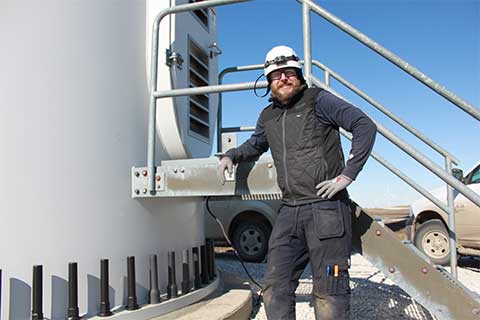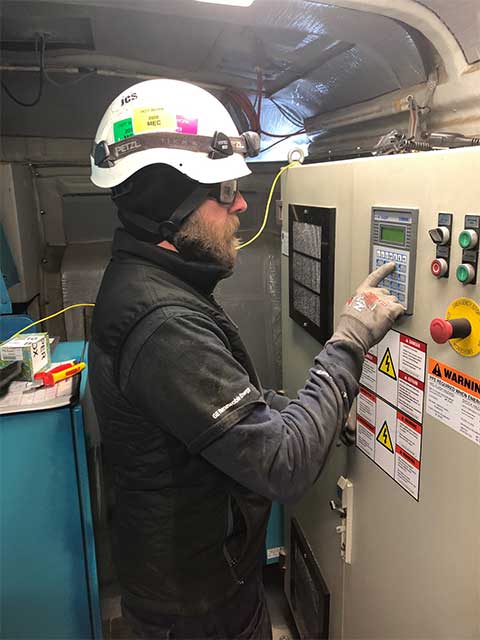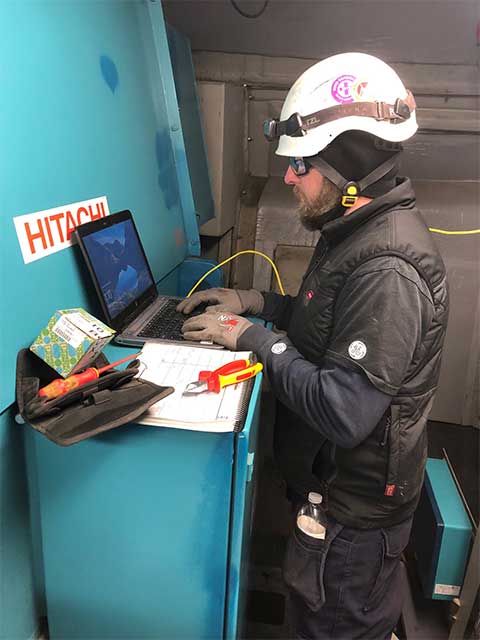What's it like to work in a wind turbine?
Ever wondered what it's like to be a technician working up in the turbines that generate our wind energy? Nearly 4,000 Iowans work in wind energy, and the U.S. Department of Labor projects wind turbine service technician to be the fastest-growing profession across the country through 2032.
Jason Gruszeczka is a wind technician who has helped keep our turbines safe and reliable for more than 10 years. He currently serves as an Environmental Health and Safety (EHS) Coordinator at our Carroll and Victory Wind Farms in Carroll, Iowa. We got the inside scoop from Jason about the thrills and challenges of wind tech life, and what it's like to be at the top of a 300-foot wind turbine.
What made you want to become a wind technician?

What are you responsible for as a wind tech?
What kinds of gear or equipment do you use to stay safe on the job?
What does a typical day look like for you?
How do you know what to look for when you're troubleshooting a wind turbine?

What's the hardest part of your job?
What's it like climbing such tall heights doing this job?
After doing this for so long, is there anything about wind turbines that still amazes you?
“The wind turbines amaze me every day. You go up there, and you have fantastic views every day. I’ve literally been up in a cloud."- Jason Gruszeczka
What kind of person does it take to be a good wind technician?
What's the culture like for a team of wind technicians?
What have the landowners you've interacted with been like?
